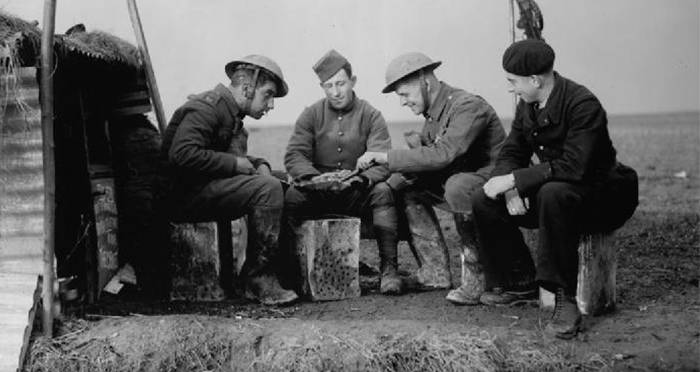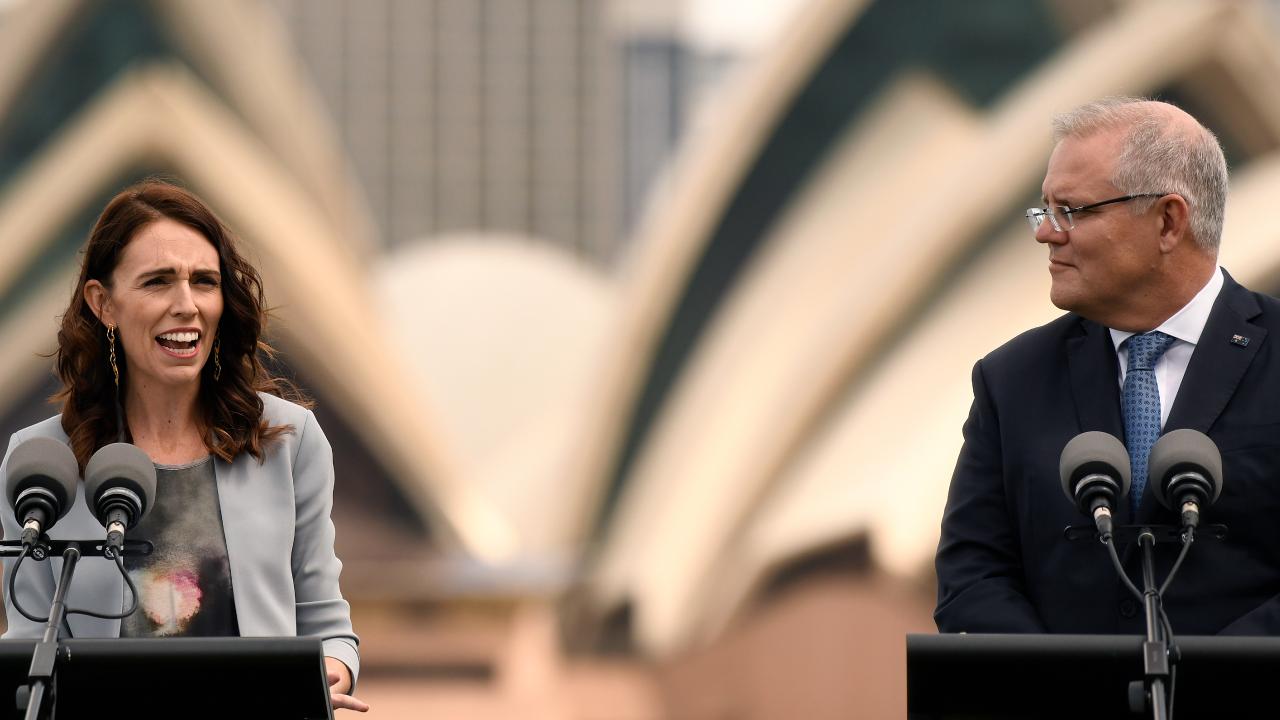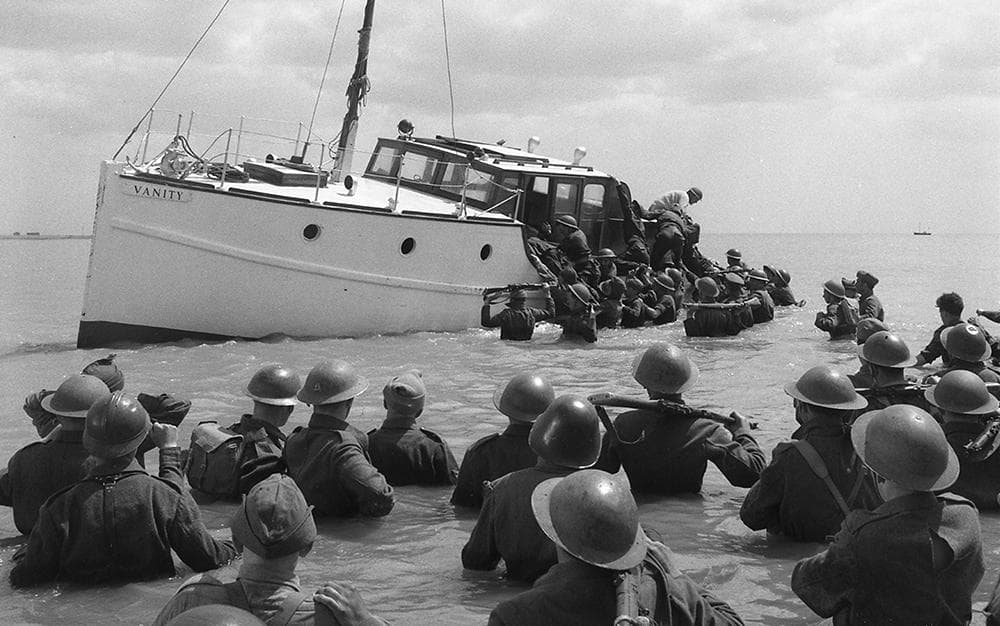The Government is currently using wartime analogies to discuss how we are combating the spread of the COVID-19 virus. There is a problem with that analogy though as they are trying to fight a war without having any casualties, and in the process crippling the economy, all to save about 20% of the over 80s age bracket.
In any war, there is a concept of acceptable losses, both in combat and in the civilian population. During World War II the population accepted many restrictions on their way of life including rationing, conscription, movement control, curfews and the separation of children from families to avoid the London Blitz catastrophe. Right now we are experiencing some of those same restrictions.

But like the Phoney War that existed in Britain before the tragedy of Dunkirk, we are experiencing our own Phoney War where people are simply not taking this virus seriously. Everyone knows people who are promulgating the notion that this is just the flu or that the current lack of deaths means that somehow New Zealand is going to avoid what no other country has managed to avoid, and that is the spread of COVID-19. Unfortunately, some of our civil servants and most of our politicians seem to think we are winning the Phoney War when the evidence is mounting that we are in fact heading resolutely towards our own Dunkirk. The Phoney War was also referred to as the “Twilight War” (by Winston Churchill) and as the Sitzkrieg, which is ironic as that is precisely what most of us are doing right now, sitting, and to use another military euphemism we have to hurry up and wait.
Unfortunately for us there isn’t a flotilla of little boats arriving that will save us.
The Government in using the war analogies leaves us to use actual war details to describe the battle thus far. Dunkirk is apt when you consider that it wasn’t until March 14 that the Prime Minister decided to invoke the war analogies and talk about bravely “going hard and going early”. Unfortunately she had done neither. The extent of the spread of the virus was known far earlier than that. In February she should have made the decision to sacrifice the tourism sector for the sake of the rest of the economy. The borders should have been shut. We had a moat and should have used that moat to defend the walls of Fortress New Zealand. Instead, the Prime Minister thought a tour of Fiji and then bearding the Prime Minister of Australia with the Sydney Opera House in the background was far more profitable politically, for her. Never mind the rest of New Zealand or our economy.

If we had shut the borders, not the half-pie, phoney shutting of the borders announced on March 14, then we might have avoided the predicament we all face now. We didn’t go hard, and we most certainly didn’t go early. Had we sacrificed the tourist sector we might really have flattened the curve. Because of the porous policy that we actually implemented we basically lost Europe, like the British did before Dunkirk.
The Phoney War is over and now we must enter the meat-grinder of a real war. Unfortunately, in a war people die. The goal of our leaders is to ensure that the sacrifices and deprivations we must now suffer will benefit the many, and a few, like in a real war, must necessarily die or suffer debilitating health issues. The questions facing the leaders of our nation are serious, and giggling through press conferences or adopting insincere posturing at the same won’t be enough. Real leaders make tough decisions.
It beggars belief that currently, our leadership thinks that somehow, by some unknown and imperceptible mechanism, we will do that which no other nation on earth has achieved and repulse COVID-19. Because the Government chose to enter the Phoney War and imposed wartime restrictions on the flow of information, even invoking wartime sayings about only trusting the government for the flow of information, we now have large parts of the population believing that we are just experiencing a bad flu. They, like the proverbial ostrich, are believing that somehow New Zealand will be alone in the world in succeeding against COVID-19.
If the Government were honest with us they’d say that it is impossible to stop the spread of COVID-19. That, unfortunately, some people are going to die, and that their job is to make that number as small as possible, but without destroying the economy that feeds us all and keeps the wheels of government turning through the taxes that pay for health, welfare and education. They would extend that honesty and say that what they tried earlier was what in the military is called a “forlorn hope”.
A forlorn hope is described as a band of soldiers or other combatants chosen to take the leading part in a military operation, such as a suicidal assault through the kill zone of a defended position, where the risk of casualties is high. Most will die. But they were acceptable losses to breach the walls in a siege. We’ve tried the forlorn hope of a porous border and a frankly pretty useless lock down. It is now time to enter true wartime restrictions.
But in war time the wheels of industry must roll on in order to feed the rapacious consumption a war entails. We must now do the same. But that requires a political leader who is prepared to accept, and be honest with the nation, that getting the wheels of industry moving means that we must also accept some losses as though we were in a real war. That means, unfortunately, that we must be prepared to accept that potentially 20% of those aged over 80 are going to die, and that those aged over 70 will suffer greatly as well. Those tough are decisions, and sometime time soon Jacinda Ardern is going to have to segue from channelling Neville Chamberlain to channelling Winston Churchill.
To continue the war-time analgies, “Going hard and going early” was akin to “Peace in our time”. She now needs a “Fight them on the beaches” speech followed by the sort of resolute leadership that Britain saw under Winston Churchill.
If Jacinda Ardern can’t make that segue, then, for the benefit of our nation in this time of our darkest need since the war, she must stand aside and get someone else to lead. Failing that, we then at least need a grand coalition formed, plucking the best, brightest and most capable to lead us and make the tough decisions that we know must be made.
Those over 70 must remain in lock down for their health and safety, but that is the least that we should do. We must accept that there will be losses, we must minimise those but not to the detriment of the rest of the nation, for that is a price that most of us are going to be unwilling to pay. The effects of the current lockdown are already catastrophic; to continue it would be folly. We can do sensible things like keeping schools, cesspits of sickness since forever, closed as they have done in South Korea. But those of working age need to be able to get back to work and save what is left of their businesses so that the wheels of industry and commerce can pay for the health and well being of the rest of the nation.
The Government should place itself on a proper war footing too. They must take an axe to wasteful nice to have Government spending, and instead deploy funds into saving the economy. We need to end frivolous spending and be quite brutal about it. Those areas, by necessity, also become acceptable casualties of war. Forget contributions to the Paris Accord, likewise the United Nations. Globalism is now dead. Cancel the fees free policy, bring in means testing for pensions, abolish entire government departments and slash council spending. Tough times mean tough decisions. That means doing what MUST be done, not that which would be nice to have. Welfare reverts to being a safety net rather than a trampoline or a hammock and we really actually start living within our means.
An honest and transparent government would say and do all that, knowing that by and large people will accept it as the only way we can survive. The war analogies continue with fortune favours the brave, and so too does General George S. Patton’s famous quote that “a good plan violently executed right now is far better than a perfect plan executed next week” followed by “courage is fear holding on a minute longer”.
Now is the time for courage from our leadership, not the Chamberlain-esque wishy-washy statements of hope and prayer. Will our leaders exhibit courage or will they quiver in the fear that what they decide might not be that palatable?
If you enjoyed this BFD article please consider sharing it with your friends.

